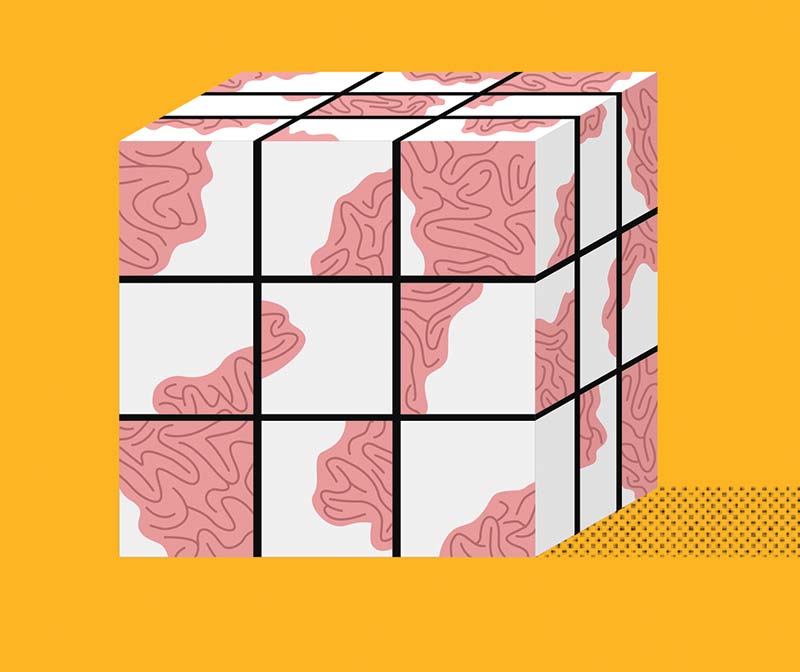Protecting the Health of Aging Brains
By Christine Grienberger

Illustration by Nick Lu
This story originally appeared in the Summer 2023 edition of Brandeis Magazine.
Part of Past as Prologue.
Genetic studies have suggested a peptide called amyloid-β plays a primary role in Alzheimer’s disease, the incurable disorder that affects millions of Americans, most of them 65 and older.
Yet treatment strategies targeted at reducing amyloid-β have proved largely unsuccessful, indicating the cognitive decline associated with Alzheimer’s likely results from a more complex pathophysiology.
The development of successful treatments for Alzheimer’s has been complicated by the fact that memory loss and other cognitive symptoms emerge late in the disease progression, making early diagnosis challenging.
Over the next 25 years, I believe a vastly improved understanding of the disorder’s complexity will yield novel therapeutic strategies as well as new methods of early diagnosis. For example, biomarkers of early, perhaps even pre-clinical Alzheimer’s disease could one day be found through neuroimaging screenings, or via cerebrospinal-fluid or blood analyses.
A multitiered approach to treating Alzheimer’s disease will probably become the standard of care. Treatments that reduce amyloid-β levels may stop the cascade that triggers single-cell dysfunction and nerve-cell death; such treatments will be especially important for people with familial Alzheimer’s, in which genetic mutations induce the overproduction of amyloid-β. And the restoration of cognition and brain health will probably depend upon therapeutic drugs that regulate brain activity and stimulate neuronal communication, improving the function of long-range brain networks.
My lab at Brandeis is working to understand the fundamental processes underlying memory and memory loss. Our findings may lead to treatments that can improve memory function and cell health, paving the way to a healthy aging brain.
Christine Grienberger is an assistant professor of biology.



